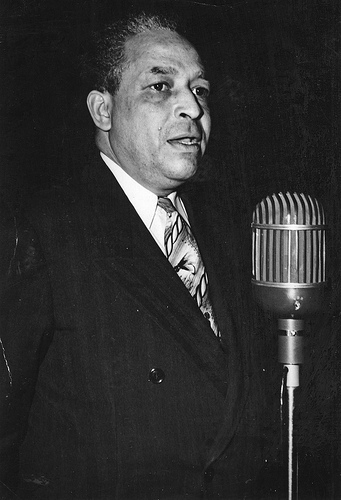Sunday afternoon ruminations
books, comics and animation, everyday glory, family and friends, food for thought, games, history, movies and TV, politics and law, Whiskey Tango Foxtrot...?!, zombies February 20th, 2011Sunday – 20 February 2011
Today is my friend, Perry’s, birthday:
This morning, I was up before 0800. That in itself wasn’t so bad. I made my way to the living room, to see what the world outside the windows looked like. Opening the blinds, I discovered the world was grey and white: Snow was falling. (Why can’t it be Spring now…?)
Yesterday’s main excitement, so to speak, was the HeroClix tournament at Dr. Volt’s Comic Connection. I was curious as to how it would go, as the store layout had changed last week, and I didn’t know how it would affect gamers’ ability to move about. Turns out that it wasn’t bad at all. We had a decent turnout – 10 players – which provided a good litmus test. We’ve had a number of close tournaments over the past few months, many of them decided by less than five (5) points. Yesterday’s event was not of that mold: The winner came in over 300 points above his nearest competitor.
On the way home from the game, I stopped to pick up late lunch/early dinner for SaraRules! and myself. (Guess who had Chinese food.) We wound down the evening with Machete. Somehow, I never got around to seeing it last year. Pity. It was a fun flick that, in many places, tossed “suspension of disbelief” right out the window… and that was just fine.
Chew on This: Food for Thought – Black History Month
Today’s person of note is Dr. DeNorval Unthank.
Unthank was born in Allentown, Pennsylvania. His mother died when he was nine, leaving eight children. Unthank’s father, a cook unable to support him, sent him to live with his aunt and uncle in Kansas City. After completing high school, Unthank attended the University of Michigan where he received his B.A. He received his medical degree in 1926 from Howard University in Washington, D.C. Unthank returned to Kansas City to complete advanced medical training before moving to Portland in 1929 to start his own practice.
Dr. Unthank was recruited to Portland in 1929 because the city needed a black doctor. He was quickly tested as his white neighbors greeted his first attempt to move into a previously all white residential area with broken windows, threatening phone calls, and general harassment. Unthank had to move his family four times before finding a place to settle down peacefully.
Throughout the 1930s, Dr. Unthank was Portland’s only black medical practitioner. He was a dedicated doctor and a friend to any minority group in the city as well. Black families could not receive treatment in hospitals – house calls were necessary, and Dr. Unthank made himself available day and night. He served African Americans, Asians and many whites as well.
Dr. Unthank was politically active and was outspoken in his support of civil rights and equal opportunity. In 1940, Dr. Unthank was elected head of the Advisory Council, an organization that hoped to pressure local leaders into providing equal access to economic opportunities related to WWII jobs. The Council documented incidents of discrimination in the workplace around Portland despite raised expectations following President Franklin Roosevelt’s signing of Executive Order 8802. On Dec. 5, 1941, the Council organized a mass meeting to promote an official letter of protest to federal authorities about Portland’s situation.
During and after World War II, Dr. Unthank worked tirelessly to build his medical practice and promote civil rights. He became the first black member of Portland’s City Club in 1943. He encouraged the club to publish a significant 1945 study called “The Negro in Portland,” which opened the eyes of many citizens to ongoing discriminatory practices. Dr. Unthank also served as president of the local chapter of the NAACP, and was a cofounder of the Portland Urban League. He played a strong role in the passing of Oregon’s 1953 Civil Rights Bill, which among many issues, overturned a law banning interracial marriages in the state.
Dr. Unthank died on September 20, 1977. His impact on racial integration and institutional recognition of minority groups was eulogized in many newspaper articles and obituaries by people from both the medical profession and the civic organizations he helped form and influence.
Stray Toasters
- I had weird and disturbing dreams involving a zombie apocalypse situation last night. That’s a new one for me.
- The Life of Edward Gorey, Told by an Old Friend
- I had no idea, until a few minutes ago, that Danny Trejo did the voice for Bane on Young Justice.
- “C” is for “cookie”
- For Kids, Self-Control Factors into Future Success
- For Tyranist: Producing a Book, the Analog Way
That’s good enough for me.
Namaste.
Leave a Reply
You must be logged in to post a comment.


